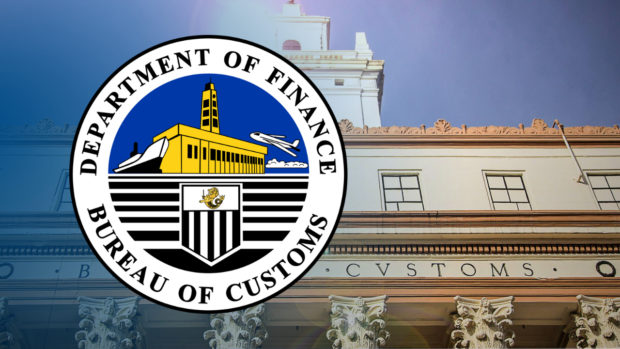
MANILA, Philippines — More than 3,000 liters of smuggled fuel said to be worth P10.5 million have been seized from a gasoline station in Abucay town in Bataan, according to Bureau of Customs (BOC).
BOC-Customs Intelligence and Investigation Service (CIIS) Director Verne Enciso said the composite team initially found 2,587 liters of diesel fuel, 3,134 liters of unleaded gasoline, and 5,342 liters of premium gasoline in the gasoline station along Roman Super Highway in Barangay Mabatang.
About 3,100 liters of fuel stored in four intermediate bulk container (IBC) tanks were discovered to have been unmarked, or did not get markings from BOC.
The markings are given to fuel importers who have complied with required tariffs and other duties.
“Our agents also entered the compound where they found 3,100 liters of the unmarked fuels stored in four IBC tanks,” Enciso said.
“These were later on confirmed by the failed fuel mark test conducted by SGS Mobile Laboratory – Limay and the ESS Fuel Marking Team,” he added.
The fuel with failed results were brought to SGS Subic in Zambales for confirmatory testing.
Enciso also noted some of the fuels recovered from the gasoline station passed the fuel marking test conducted by the laboratory.
Still, the BOC official said the owner of the gasoline station was required to present proof of payment of duties and taxes for the imported fuels.
The inspection was conducted by agents from Customs Intelligence and Investigation Service-Manila International Container Port (CIIS-MICP) and the Enforcement and Security Service (ESS) and National Bureau of Investigation-Anti-Organized and Transnational Crime Division (NBI-AOTCD), after a letter of authority (LOA) from BOC Commissioner Bien Rubio was issued and acknowledged by the gasoline station representatives.
As of now, the compound has been padlocked while the fuel seized during the operation were sealed.
If proven that the fuel did not have the proper documents and necessary permits, the owners of the gasoline station and compound can face charges for violating Sections 1401 and 1430 of the Customs Modernization and Tariff Act, and Sections 148-A, 254, and 265-A of the National Internal Revenue Code.